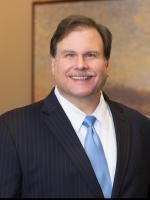The Southern District of Florida recently granted a defendant’s motion for summary judgment on certain aspects of a plaintiff’s TCPA claim because plaintiff could not establish that defendant used an ATDS to call her cell phone. Johnson v. Capital One Services, LLC, No. 18-CV-62058, 2019 WL 4536998, *1 (S.D. Fla. Sept. 19, 2019). The case illustrates that a plaintiff must present concrete evidence demonstrating that a defendant used an ATDS in order to survive a motion for summary judgment. See id. at *3-4. A plaintiff cannot rely on purported “admissions” obtained from a call agent on the phone or plaintiff’s own subjective characterizations of the call. Id.
The Johnson plaintiff alleged that defendant violated the TCPA when it attempted to collect a debt arising from a consumer credit card account. Id. Defendant allegedly placed a series of telephone calls to plaintiff’s cellular phone after she revoked her consent to receive calls from an ATDS. Id. Defendant’s motion for summary judgment argued that plaintiff failed to establish that it used an ATDS to place the calls at issue. Id. at *3.
In response, plaintiff relied upon statements from her own declaration to demonstrate that defendant used an ATDS. Id. at *3-4. First, plaintiff’s declaration stated as follows:
“On May 16, 2018 at approximately 3:58 p.m. [plaintiff] received a telephone call from [defendant] and was eventually connected to a representative [of defendant’s company]. [Plaintiff] asked [the representative] directly if he had used an auto dialer to contact [her] that day and [he] stated that [defendant] had used an auto dialer.”
Id. at *4. The court determined that the “perfunctory statement” from defendant’s representative was insufficient to create a genuine dispute of material fact regarding the use of an ATDS because “to fall within the definition of an ATDS under the TCPA, the equipment used must have the capacity to store or produce telephone numbers to be called using a random or sequential number generator and to dial the stored numbers.” Id. (emphasis in original).
Second, plaintiff declared that she heard a “noticeable pause before calls connected.” Id. The court held that this statement was also insufficient at the summary judgment phase of a TCPA case to create a genuine issue of material fact as to the use of an ATDS. Id. The court determined that to survive a motion for summary judgment a plaintiff must “point to record evidence” rather than “her belief that an ATDS was used based upon hearing silences before being connected.” Id. Moreover, the court observed that other courts have “routinely rejected similar claims by plaintiffs who try to maintain a TCPA claim on the belief that an ATDS was used based on ‘clicks,’ ‘delays,’ or ‘dead air’ on the other end of the line.”’ Id. (quoting Martin v. Allied Interstate, LLC, 192 F.Supp.3d 1296, 1308 (S.D. Fla. 2016) (holding that a plaintiff cannot survive summary judgment by merely stating that she “heard an auto dialer” during a call with defendant) (collecting cases). Plaintiff’s failure to present hard evidence regarding the features and capabilities of the equipment used to place the call doomed her claim.





 />i
/>i

